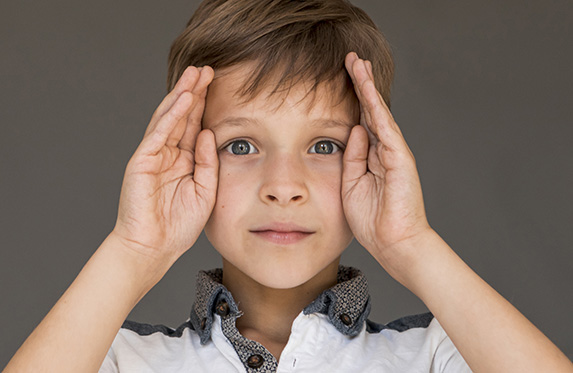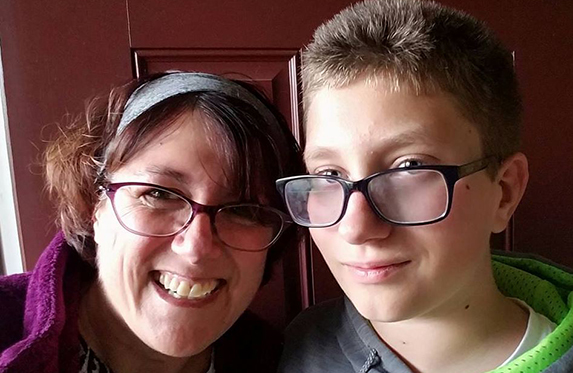If you would like to make an investment that lifts lives, brightens futures and strengthens the community, consider helping us. Please use the donate buttons below to select a secure method of online payment through PayPal, which allows donations by debit or credit card (PayPal keeps a two percent transaction fee for each donation).
Many Florida students, like 9-year-old Madden Craine, face intense pressure from the state’s FAST tests, which they must pass to advance grades starting in third grade. Critics say this system fuels anxiety, focuses too much on test prep, and can harm self-esteem. Although some lawmakers proposed changes, the effort stalled. Experts and educators agree that while assessments are useful, inspiring and supporting struggling readers is far more effective than teaching to a single high-stakes test.
Matt Lincoln - Channel 12 Interview
Across the country, only 35 percent of public school students are
proficient readers by grade 4. There was a meeting of the minds
Wednesday to discuss how to get the word out about a possible
reason why - mis-diagnosed issues that students have in their
brain...
Often undiagnosed hearing condition leading to kids' reading issues. Finding out a child has Auditory Processing Disorder, or APD, can be a tremendous relief for parents who are frustrated they can’t seem to get to the bottom of their child’s struggles. But getting to that diagnosis, then finding the help they need, too often proves to be an exhausting and discouraging battle.
Channel 12 Interview
Auditory Processing Disorder (APD), also known as Central Auditory
Processing Disorder (CAPD), is a condition that affects the way in
which the brain processes and interprets sounds. APD is a
neurological disorder, meaning that it affects...

As a parent, you want the best for your child, and that includes ensuring their health and well-being. However, when your child has a vision condition that requires vision therapy, the cost can be a significant challenge. In this blog article, we will explore the high cost of vision therapy for families with children in need and provide some tips for managing the expense.
Vision Therapy
Most of us are lucky enough where our eyes work without ever
needing to think about them. While wearing your appropriate
optical correction, if required, no matter where you look, you
see. There is no conscious thought required. Using a series of
visual efficiency and visual processing skills, our eyes and brain
work together...
by Dr. Christina Murray, O.D.

As a result of my August 2022 presentation to the COVD Study Group
in Florida, I filed a complaint with the U.S. Department of
Education Office of Special Education Programs (“OSEP”) regarding
continuing violations of...
by Michele Kotler, Esq.
Ironically, it seems we should know if our own children are
experiencing vision problems that interfere with their
functioning. After all, who knows our children better than we do?
As it turns out, there can be visual system problems that we
cannot see as outside observers. Perhaps we notice some...
by Michele Kotler, Esq

Hello, my name is Michele Hillman and I am sharing with you, not
only my son’s story, but a little about me and how our lives have
had the wonderful opportunity to change the positive outcome of
many lives since 2013.
by Michele Hillman
Visual perception allows us to process the visual information
being sent to the brain. Our brains constantly take in and sort
through excessive amounts of visual information. Once the...
by Dr. Christina Murray, O.D.

The importance of touch has long been known to affect bonding, physical growth, immune system function, stress relief, and brain development; however, the connection between the auditory system and the system of touch is often overlooked.
MNRI
Vision therapists change lives. We take a child who is struggling
and give them the tools to learn and become anyone they want.
by Lori Baron

My name is Sue Mann. I am a mother of two children that had both APD (Auditory Processing Disorder) and VPD (Visual Processing Disorder). For many years, I was constantly worried and stressed trying to figure out how I could help my kids get through another day of school. Both my daughter and son hated school. Being a responsible parent, I forced them to attend school every day. After all, isn't that what we parents are supposed to do?
Change is comingThe next level of development is the motor systems. Body schema, bilateral integration, ocular motor control, and motor planning begin developing during this stage. The brain depends on information gathered by the sensory systems to give the required information for the brain to carry out motor movements.
Motor DevelopmentFrom birth, we interact with our world through a network of sensory systems. Each system provides complementary information about the environment. The brain is responsible for sorting and merging information collected from all the senses. Here is an overview of the seven senses:
Sensory Systems

Development begins with a set of automatic movement patterns that originate in the brain stem. These specific motor patterns are called primitive reflexes. They are essential for a baby’s survival during the birthing process and in the first few weeks of life. Primitive reflexes are fundamental for developing muscle tone, sensory integration, head control, and overall development. As the infant’s brain develops and matures, the infant’s movements become more voluntary and controlled...
Primitive ReflexesImagine a classroom of fifth graders sitting at their desks while their teacher presents a lesson on the solar system. She presents an array of images and bulleted points on the planet's properties, all while elaborating on the details. Students in the class diligently take notes on the subject matter. Let’s look at two students in the class:
Developmental Pyramid
Vision Therapy is a series of activities presented to the patient under very controlled circumstances, practiced for reinforcement, and then built upon for enhancement of visual skills. The goal is not to strengthen eye muscles! Your eye muscles are already incredibly strong. Rather, the goal is to...
Better Vision

Visual-Spatial learners do better visually compared to auditory-sequential learners. Visual-Spatial learners do not learn from repetition and drills. They need to see the big picture before they can learn the details. They do not learn step by step like most teachers teach. They are organizationally challenged and are not focused on time. They are often gifted creatively or with technology or mathematics...
Visual-SpatialYour child is showing signs of learning difficulties. She is having difficulty reading. He is not copying the directions off the board. Your first impulse is to think “It’s temporary, just a passing phase.” You find yourself making excuses, “It’s a new school,” “He needs to get used to this teacher,” “We just had a hurricane, and she got off track.”
Learning difficulties

I had the privilege to meet with both Dr. Leah Light, Audiologist and founder of The Brainchild Institute and Dr. Elza Vasconcellos, a Pediatric Neurologist who specializes in Neurodevelopment and Director of WeMind Institute. It was remarkable to listen to their conversation because both ladies are passionate about helping children and so compassionate about what a child goes through every day at school...
Conversation
Bright Minds Processing Inc.
Florida 501(c)(3) nonprofit organization
EIN: 85-1336250
Find free helpful high quality resources, tools, and news to support academic, social, and emotional learning. Find more information about Auditory Processing Disorder, Visual Processing Disorder, and Executive Function Disorder. Subscribe to our mailing list.